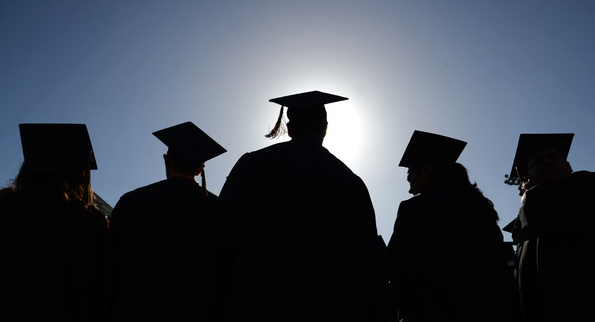
Associated Press
There’s been a big push in this country to get more students into and through college. But according to a new report by the National Student Clearinghouse, the number of people who earn a degree in the U.S. has remained flat since 2012.
Although the total number of people who’ve earned college degrees has been relatively stable, the percentage of degrees going to those who’ve never received a college credential has dropped by 3 percent.
“A growing percentage of the degrees are being awarded to students who already have a college degree,” said Douglas Shapiro, executive research director at the National Student Clearinghouse, which produced the report.
Shapiro says more and more students who already have an associate degree are going back to college to earn their BA or another credential or certificate.
“We're actually producing more multiple credentials and we’re creating fewer new college graduates out there,” Shapiro said.
Related: Working Stiff: Community College Students Struggle To Balance Jobs And School
Of course, that trend doesn't come without consequences.
“We’re concerned obviously,” said Dewayne Matthews, vice president for strategy at Lumina Foundation, which has led a national effort to increase the total number of college graduates. “We need to turn that number around. We’re not overly concerned however because we know that the number of both enrollments and graduates are a strong reflection of the state of the economy,” said Matthews.
As the job market improves, students who enrolled in college during the depths of the Recession re-entered the job market. And the biggest drop in degree attainment was among adult learners, who often have work and family responsibilities.
“Many of these adults and many others really will need some sort of degree or other credential to both maintain their careers and grow them,” Matthews said.
Researchers say the report should stimulate a conversation about the changing higher education landscape and the growing importance of community colleges, which serve first-generation, low-income students.
Earlier: Black College Students Major In Fields That Offer Lower Economic Payoffs, Study Finds










